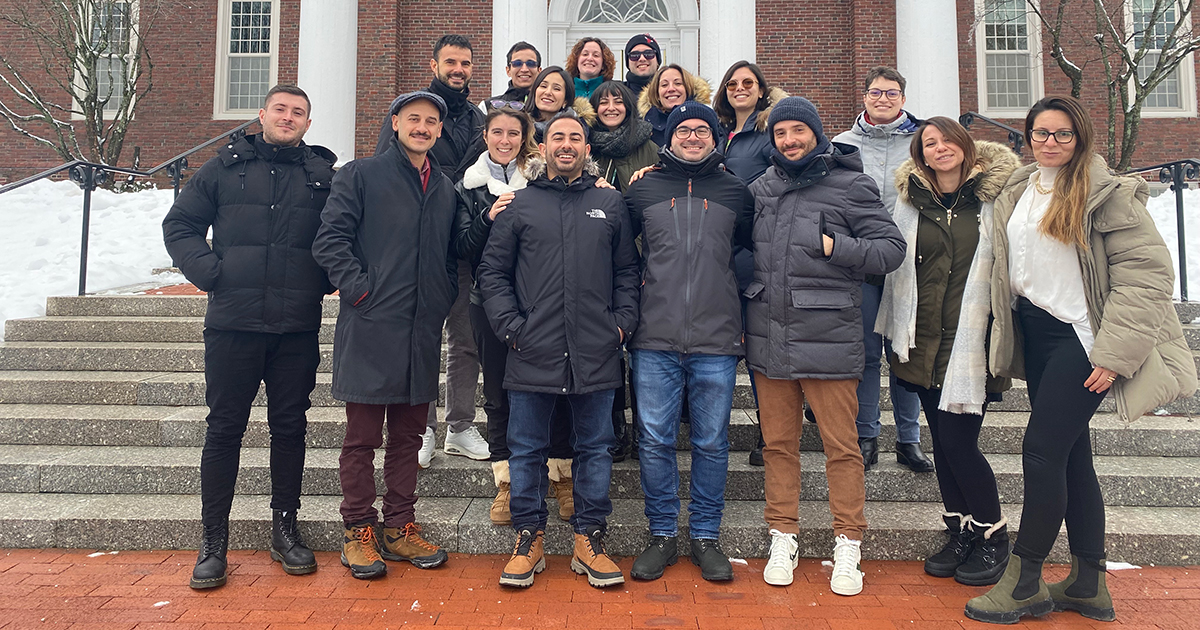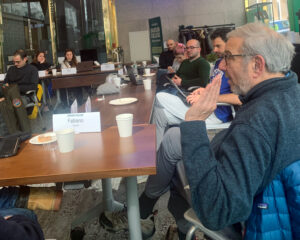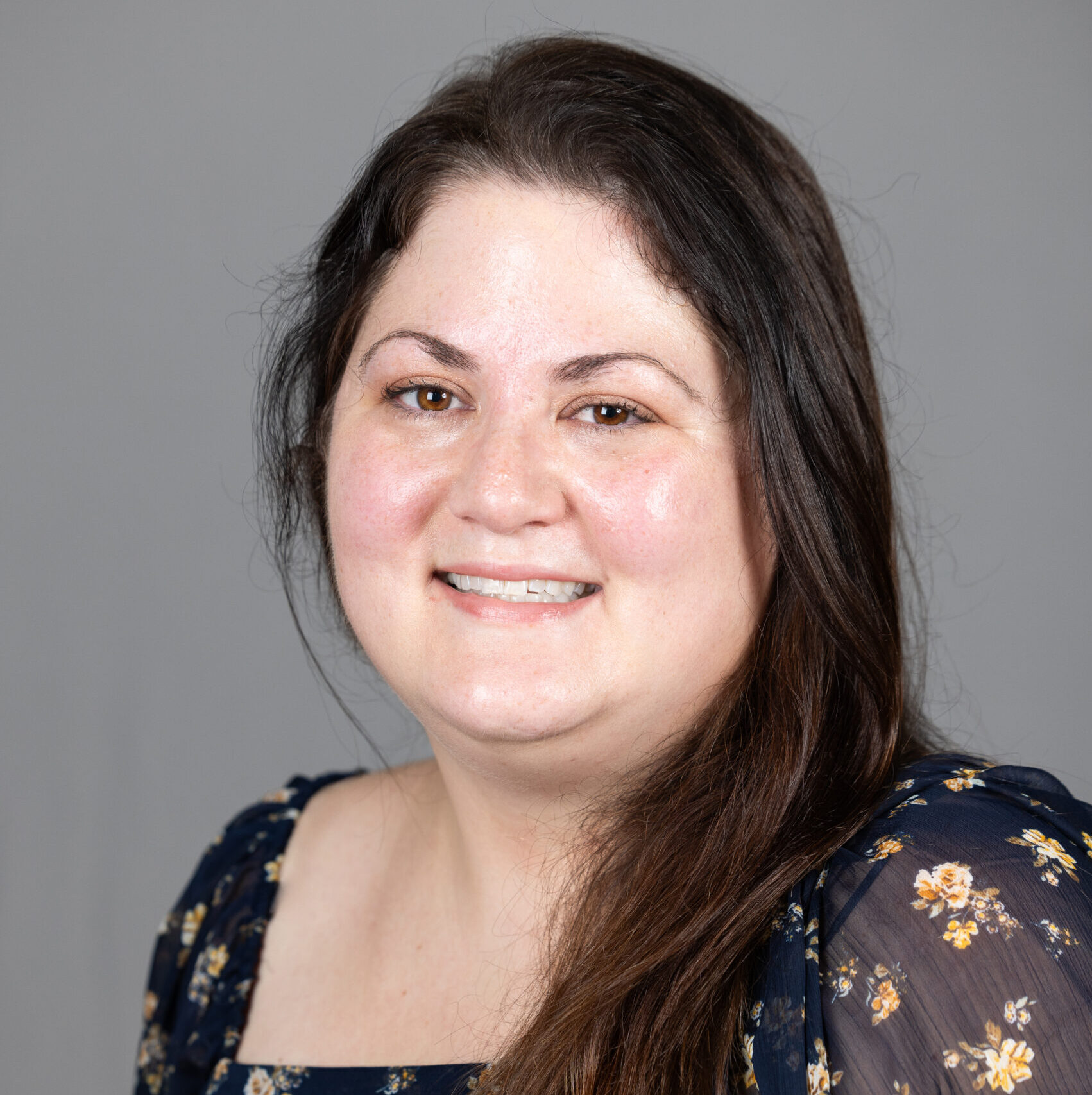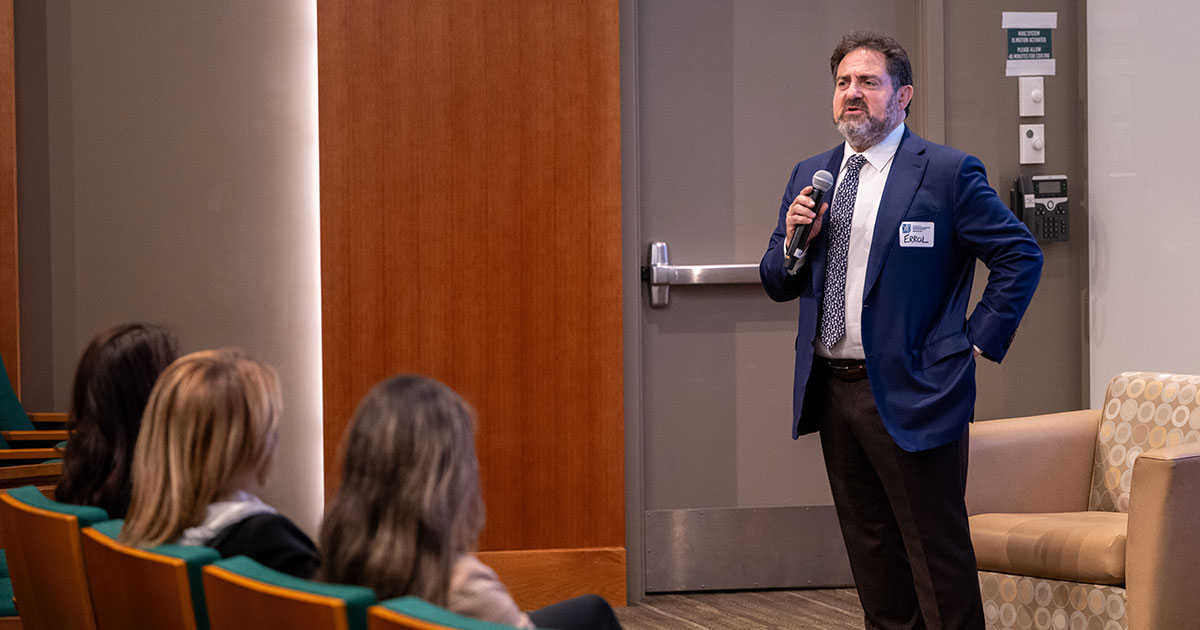Babson Helps Sardinia Students Take Home New Way of Thinking

Great business ideas usually start with a change of perspective. For some entrepreneurs, such as Daniele Gavelli, that perspective comes from almost a decade of trips across Europe and the United States.
Gavelli, an avid cyclist since childhood, has spent the past seven years traveling and riding his bike in places such as Brussels, New York City, Barcelona, and Paris, as he simultaneously earned a doctorate degree in cinema, tourism, and local identities. During one of those trips, he met some cycle tourists who use solar energy to charge their electric bike batteries.
As the pedals moved on the ground, the gears turned on a business idea.
Gavelli is one of 15 entrepreneurs from the Italian island of Sardinia who spent the start of 2023 on the Babson campus, ready to find a new perspective on their business ideas. They came with Talent Up, part of a larger initiative in Sardinia that aims to grow a new generation of local entrepreneurs. Gavelli’s idea, called Solar Wings, aims to make it easier for tourists to rent solar-powered e-bikes.
“It’s a huge investment in people who want to innovate in a region that’s having an economic struggle,” says Elisabetta Secchi, a project coordinator with Fondazione Giacomo Brodolini (the partner foundation of Talent Up), who traveled to Babson with the students from Sardinia. “They have the chance to come up with an idea for a startup and a chance to come to the United States and see the most important places for innovation.”
Different Continent, Different Approach
The foundation started working with Babson Executive Education in August 2021. The students spent a week in San Francisco in fall 2022, networking with companies such as Google and Microsoft. And, then in January, they arrived at Babson. Les Charm, associate professor of practice in entrepreneurship and the faculty director for the program, assembled a team of 10 Babson faculty members from the entrepreneurship, management, and marketing divisions to deliver the curriculum as well as bringing in select entrepreneurs as guest speakers from the Babson network.
“The idea is to create people who get the mindset to start their own businesses. In my view, if they start to hire locally, we’ve changed the economy.”
Les Charm, Associate Professor of Practice in Entrepreneurship
The program provides entrepreneurs from Sardinia with a new way of thinking about business—and a new way of learning. “You can come from a little island and see all this, see a new approach, which isn’t our approach,” says Manuelita Mancini, director at Fondazione Giacomo Brodolini. “Their job now is to take the things they’ve learned and take those things back to Italy.”
She calls Babson’s approach to teaching entrepreneurship “more interactive, more immersive” than what the students have experienced. Charm says he never stands in the front of the class and projects; instead, he sits in the back with the students, facilitating conversations you would see in actual business meetings.
Turning Ideas into Innovations
Most classes were held in the Arthur M. Blank Center for Entrepreneurship, right in the middle of Babson’s entrepreneurial ecosystem, so the group had the opportunity to meet other Babson students. The agenda included sessions covering theoretical and practical skills, such as design thinking, reverse thinking, and social media marketing; cosplaying as food truck owners; and building prototypes at the Weissman Foundry, culminating in a new business plan and final pitch presentation at Babson Boston.
“We want them to frame their idea in more practical terms: How big is the marketplace? Who is the customer specifically? How do you reach the customer?” Charm says. “That’s the difference between having an idea and having an opportunity. The idea is to create people who get the mindset to start their own businesses. In my view, if they start to hire locally, we’ve changed the economy.”

Les Charm leads a discussion at Babson Boston on the last day of the eight-week Talent Up program.
The students took a session on sustainability, and many students cited sustainability as an interest and as an important part of their innovative ideas in their business plans.
That includes Silvia Cadelano, a stylist and fashion entrepreneur whose startup, Nerei, lets customers design swimwear and lingerie while using sustainable textile practices. She specifically mentions how applying reverse and design-thinking practices to her business plan allowed her to change how she wants to go to market.
“Instead of test, test, test, it gives us something to move forward with to get the idea out of our brains—to see some results, some new ideas,” Cadelano says.
In the last session of the program, after weeks of learning and exploring Babson and Boston, the students spent one final morning with Charm, discussing how their business plans have evolved over the eight weeks, having final discussions about finding investors and potential partners and how to prioritize revenue and customers. It’s a few theoretical souvenirs before they head to the airport and start to make an impact at home.
“Ideally, they come back home and maybe start a business and create jobs,” Mancini says. “You have an opportunity to design your own job and to give that opportunity to other people. It’s about having a different perspective.”




